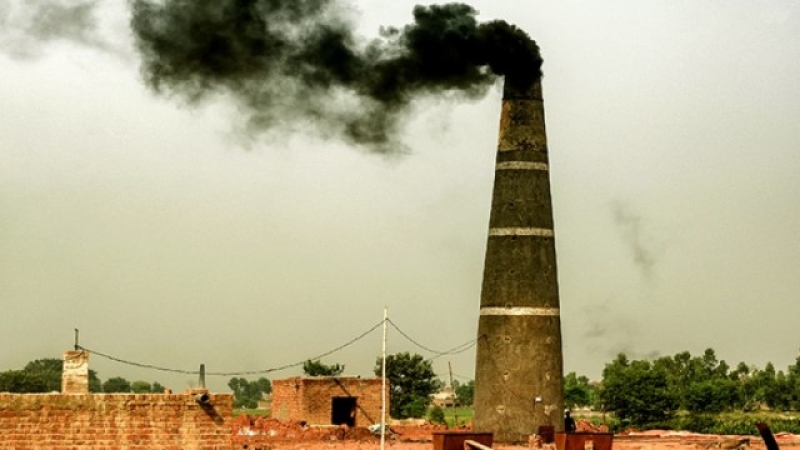- Biman Suspends Flights to Six Middle East Cities Over Tensions |
- Govt Announces 25pc Rail Fare Discount |
- Middle East War Puts Bangladesh Jobs at Risk |
- Starmer criticises Trump, defends UK position not to allow use of its bases |
- Iran War: Nuke watchdog urges restraint amid ongoing strikes |
114 out of 144 brick kilns in Jashore operate illegally

A brick field in operation in Jashore. UNB
By Md Mohsin Ali
Jashore, Jan 26 – Illegal brick kilns continue to proliferate across Jashore, with 114 out of 144 operating without the requisite environmental clearance or licences from the district administration, in flagrant violation of the law.
A report from the Department of Environment (DoE) reveals that none of the brick kilns in the district fully comply with legal requirements.
Of the total, only 30 kilns employing the zigzag method meet partial standards, while the remaining 114 blatantly disregard regulations.
Despite warnings and legal amendments aimed at curbing unauthorised operations, illegal kilns remain rampant, contributing to significant environmental damage and posing a severe threat to public health.
Law and Violations
The Brick Manufacturing and Brick Kiln Establishment (Control) Act, amended in 2013 and again in 2019, mandates licensing for all brick kilns.
The law prohibits brick production within one kilometre of residential areas, forests, wetlands, agricultural land, or sensitive establishments such as schools and hospitals.
Besides, traditional kilns with 120-foot chimneys are no longer permitted, with all operators required to adopt the environmentally safer zigzag method.
Violations of the law are punishable by up to two years of imprisonment and fines of up to Tk 20 lakh.
But field investigations reveal rampant disregard for these provisions.
Kilns have been found as close as 20 yards to residential homes and within 100 yards of densely populated villages.
Many have been established on agricultural land, destroying fertile soil and jeopardising livelihoods.
Sources indicate that 110 of these kilns are located within one kilometre of educational institutions, breaching regulations and exposing vulnerable populations to harmful emissions.
Enforcement Challenges
Despite the severity of the violations, law enforcement has been sporadic.
Several years ago, the DoE’s Jashore office submitted a report to its headquarters in Dhaka, recommending action against 33 illegal kilns.
But most continue to operate with impunity.
To address the issue, the DoE has recently intensified its monitoring and enforcement activities.
On 27 December last year and 8 January this year, mobile courts conducted drives against 18 kilns, imposing fines and partially demolishing some structures.
Emdadul Haque, Deputy Director of the DoE in Jashore, vowed tougher action against violators.
“No irregularities will be tolerated. Immediate steps will be taken to ensure all kilns comply with the law,” he said.
Government Response
The Ministry of Environment, Forest, and Climate Change has pledged to dismantle all kilns operating in violation of environmental regulations. Additionally, the 30 kilns currently classified as legal will undergo further scrutiny to ensure full compliance with the law.
While recent enforcement measures mark a step forward, environmental advocates argue that sustained action is necessary to tackle the deep-rooted problem of illegal brick kiln operations in Jashore. Without consistent oversight, they warn, the environmental and public health risks posed by these kilns will persist. - UNB

